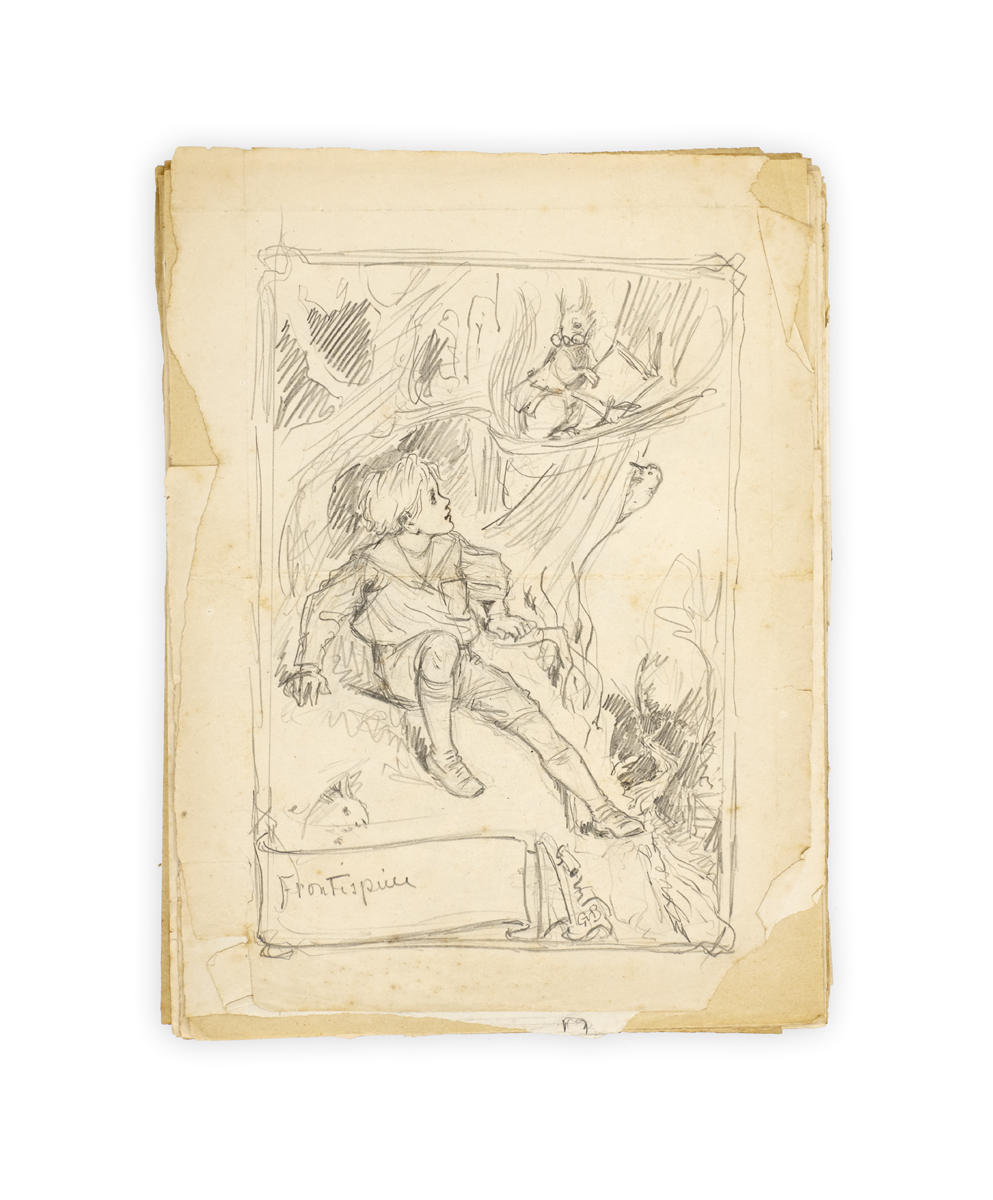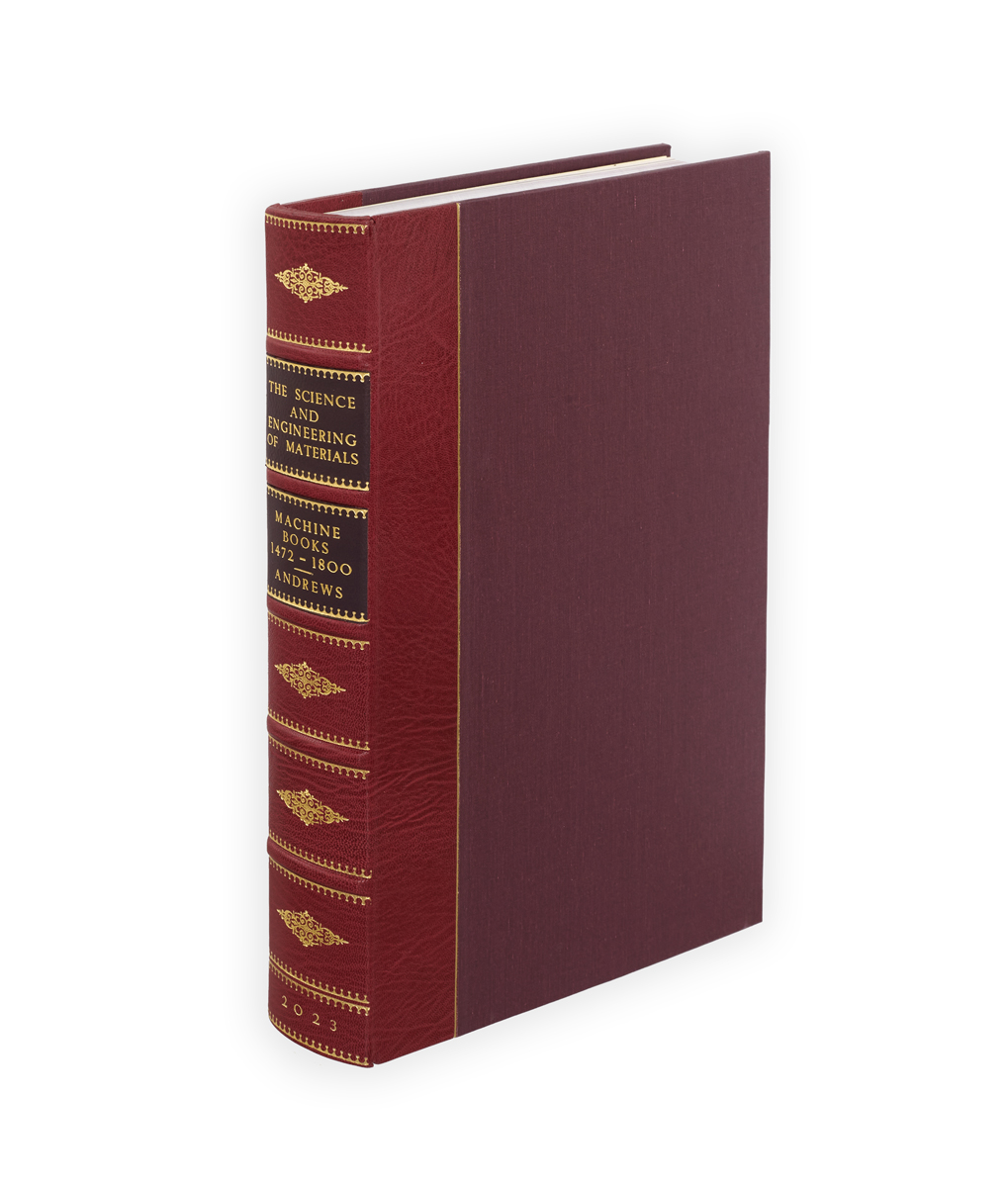
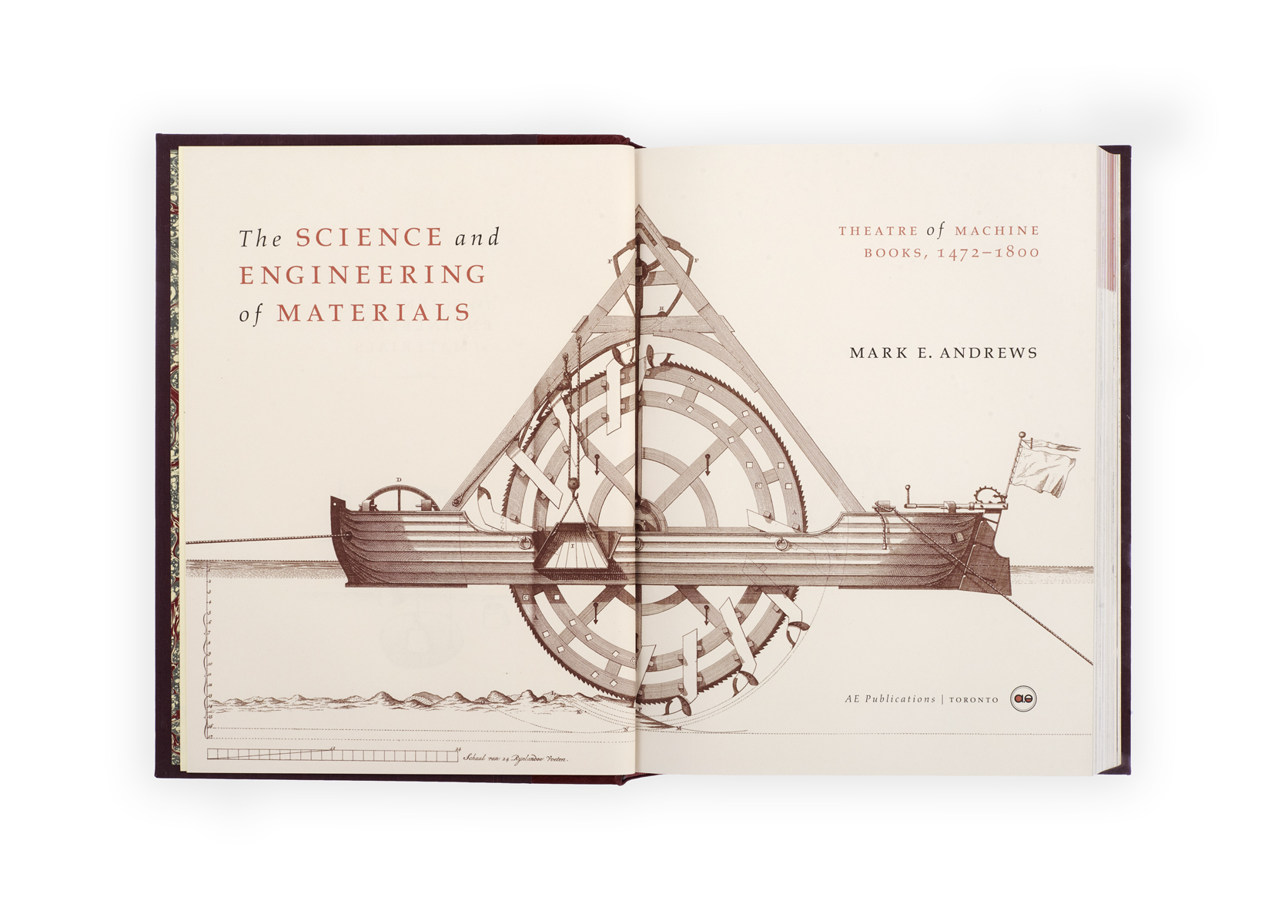
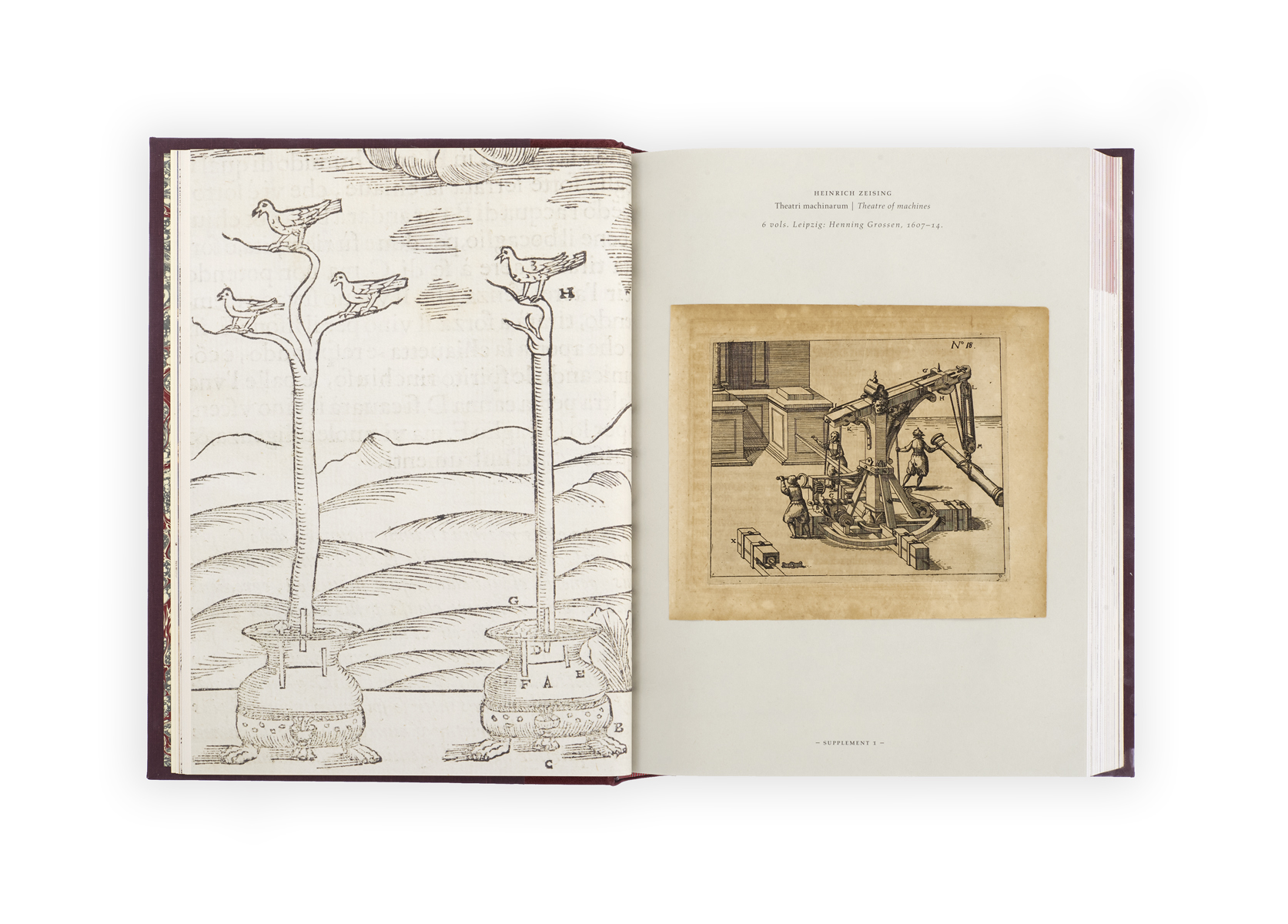
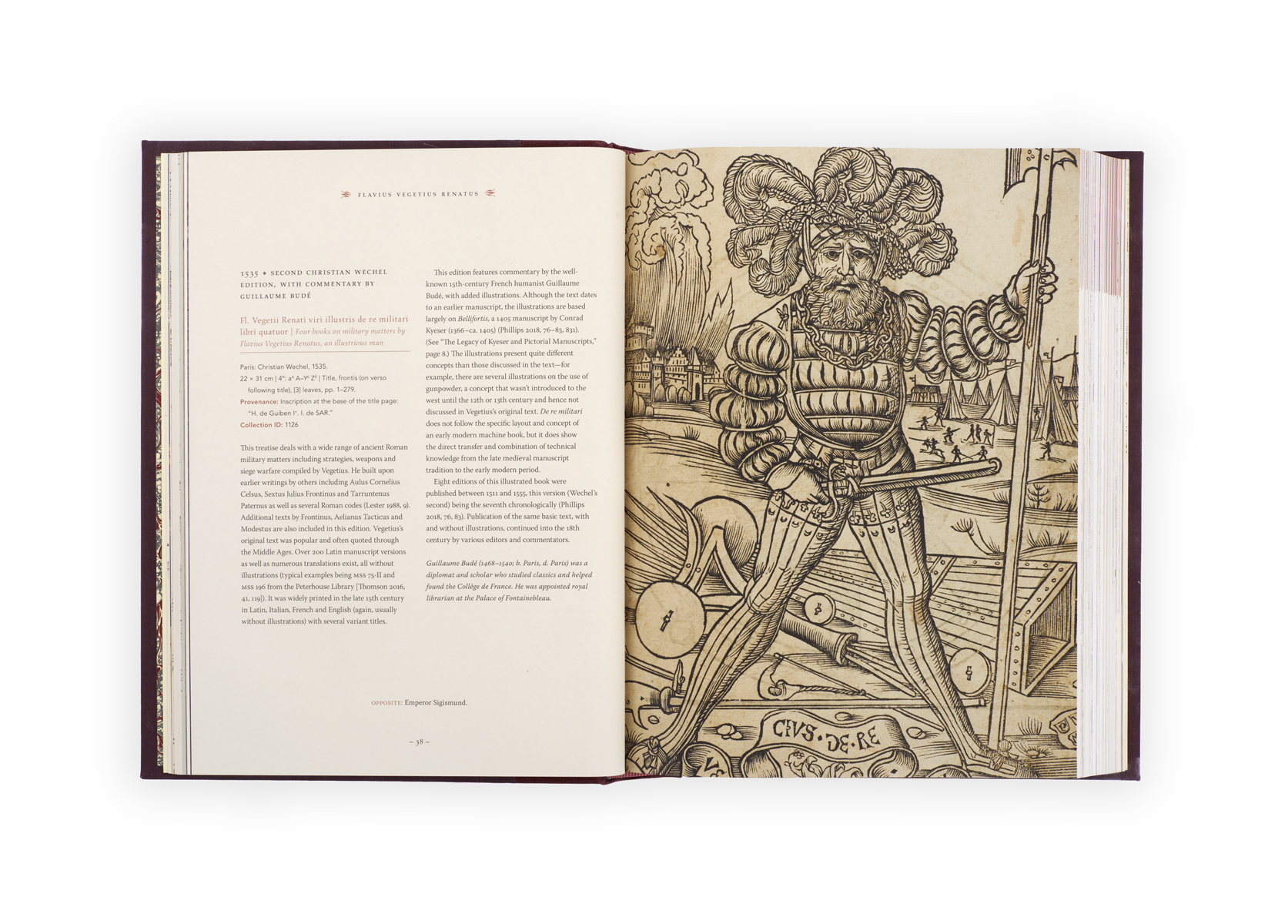
DELUXE COPY – WITH FOUR ORIGINAL LEAVES
ANDREWS, Mark E.
The Science and Engineering of Materials: Theatre of Machine Books, 1472–1800.
Toronto, A.E Publications, 2023.
Folio (c. 310 x 235 mm), pp. ix, [1], 419, [3]; with over 350 illustrations and 2 illustrated fold-out plates; a fine copy in modern gilt-ruled goat-backed boards with burgundy cloth sides, spine gilt in compartments, raised bands, brown gilt morocco lettering-pieces, marbled endpapers, in a burgundy cloth slipcase; printed limitation to front pastedown, with four original leaves bound in (see below).
£950
US $1222 €1124
If you wish to order more than one copy of this publication please make an enquiry. Add to basket Make an enquiry

Added to your basket:
The Science and Engineering of Materials: Theatre of Machine Books, 1472–1800.
One of twenty-five finely bound numbered deluxe copies, with four original leaves bound in, of this extraordinary survey of four centuries of machine books, tracing the evolution of printing techniques and draughtsmanship alongside the development of the machines themselves.
In this catalogue of eighty-six works from his collection of books on civil engineering, Mark Andrews situates a series of landmark machine books within a broader context of related works and supplemental material. The glossary, lavish illustrations, and contextual nature of the accompanying descriptions render The Science and Engineering of Materials an equally invaluable resource for technical and non-technical readers alike, providing a highly accessible introduction to the world of machine books, ‘a form of literature that puts these machines on display to promote their use and guide technicians in their creation and application’.
Although the origin of the genre of machine books – which are ‘based in science but do not discuss scientific principles nor develop or discuss theory’ – is traditionally held to be either Georgius Agricola’s 1556 De re metallica or Jacques Besson’s 1578 Theatre des instruments mathematiques & mechaniques, Andrews begins with Valturio’s 1472 De re militari. In opening with a series of incunable works on the use of machines in siege warfare, Andrews traces the gradual shift in the function of machines from the military to the civil, developing a uniquely comprehensive timeline of the genre which is inextricably entwined with the history of the book.
The extra leaves come from:
ZEISING, Heinrich. Theatri machinarum. Leipzig, Henning Grossen, 1607–14.
ZONCA, Vittorio, and Francesco BERTELLI (editor). Novo theatro di machine. Padua, Pietro Bertelli, 1607.
BRANCA, Giovanni. Le Machine. Rome, Iacomo Manuci, 1629.
GROLLIER DE SERVIÈRE, Gaspard. Recueil d’ouvrages curieux. Lyons, David Forey, 1719.

